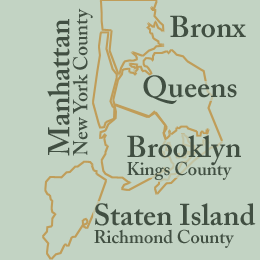Stays after Entry of Judgment in Nonpayment Proceedings
In General: Stay Of Enforcement Of Judgment Or Order Without Appeal
Staying Eviction by Paying Rent
Stay of Evictions of Persons or Dependents of Persons Serving in the Military
Automatic Stay After Filing Bankruptcy
Petition
In General: Stay
Of Enforcement Of Judgment Or Order Without Appeal
A tenant who lost at trial and seeks to stay the issuance of the warrant of eviction must apply to the judge who granted the landlord the judgment.
A landlord or tenant seeking to obtain an extension of time to comply with orders to pay money, vacate the premises, make repairs, or correct mathematical errors will be directed to the judge presiding in the Part to which the case is assigned. If that judge is not available, the party will be directed to a different judge.
The court has general power to stay proceedings in a proper case, upon such terms as may be just, as well as specific powers as discussed below.
In order to obtain a stay you must come to court and fill out an Order to Show Cause. To read more about this process click on Orders To Show Cause. To find out where to go in your county, click on Locations & Phone Listings.
To learn about stays of enforcement of judgments when appealing, click on Appeals.
Staying Eviction by Paying Rent
If the tenant in a nonpayment proceeding pays to the landlord all of the rent then due (including rent that has become due since the date of the petition) before the court case is heard, the landlord must accept the rent and the case cannot go forward. At any time before a warrant has issued, the tenant in a nonpayment case may obtain a stay of issuance of the warrant by depositing the full amount of rent due plus the costs of the proceeding with the clerk of the court. The amount deposited will be turned over to the landlord upon request.
Even after a warrant has issued, as long as there has not yet been an actual eviction, if the tenant in a nonpayment proceeding pays all of the rent then due to the landlord, the warrant must be vacated, unless the landlord can show that the tenant withheld the rent in bad faith.
Stay of Evictions of Persons or Dependents of Persons Serving in the Military
A landlord may not evict a person serving in the military, or his or her spouse, children or other dependents from an apartment, during the period of military service without an application to the court. On such application the court may stay the proceedings for six months, unless the court determines that the respondent’s ability to pay rent is not materially affected by the military service.
Under certain circumstances, a person serving in the military or his or her dependents may also seek a stay of an action or proceeding or a stay of the enforcement of a judgment or order.
Automatic
Stay After Filing Bankruptcy Petition
When a residential tenant files a bankruptcy petition, an automatic
stay prevents the landlord from bringing or continuing a case to
obtain possession and from enforcing a judgment obtained before
the start of the bankruptcy case. The purpose of the stay is to
give the debtor a breathing spell from his creditors.
The automatic stay only applies to proceedings concerning property in which the debtor has an interest at the time the bankruptcy proceeding is commenced, which is when the bankruptcy proceeding is filed.
In landlord/tenant cases the court may determine that the tenant no longer has an interest to protect at the time of filing a bankruptcy petition if the warrant of eviction has already issued. In both the New York State courts and the federal Bankruptcy Court, depending on the facts of the individual cases, the issuance of the warrant of eviction may or may not be a sufficient basis upon which to lift or modify the automatic stay, or to conclude that the bankruptcy petition did not qualify for an automatic stay.
After a tenant files for bankruptcy a landlord may seek to have
the stay in Bankruptcy Court vacated, in order to commence or continue
an eviction proceeding. The Bankruptcy Court may terminate, modify
or condition the stay based upon various factors, including payment
of ongoing rent, the condition of the premises and the equities
of the case. If the stay in Bankruptcy Court is lifted, the Civil
Court will have jurisdiction to hear and decide the eviction
proceeding, and the landlord who obtains a judgment and warrant
of eviction will be able to enforce a possessory judgment with eviction.
If the tenant’s debt, which includes past rent due, is discharged
at the conclusion of the bankruptcy proceeding, the landlord may
then seek recovery of the premises and eviction of the tenant/debtor.
This is because while the debt may have been discharged, it has
not been extinguished, and discharge of debt is not equivalent to
payment of debt. A discharge only prevents a creditor from proceeding
against a debtor on the debt as a personal liability, but does not
eliminate any of the other consequences of that debt. Therefore,
as long as the landlord does not attempt to obtain a money judgment
for a discharged debt, the landlord is free to commence a nonpayment
proceeding to recover possession. Thus a landlord may evict the
tenant/debtor for his/her failure to pay rent which has been discharged
in bankruptcy.
A debtor may voluntarily repay a debt that has been discharged even
though the debt can no longer be legally enforced.
To find the Bankruptcy Court in your county, click on Locations.


